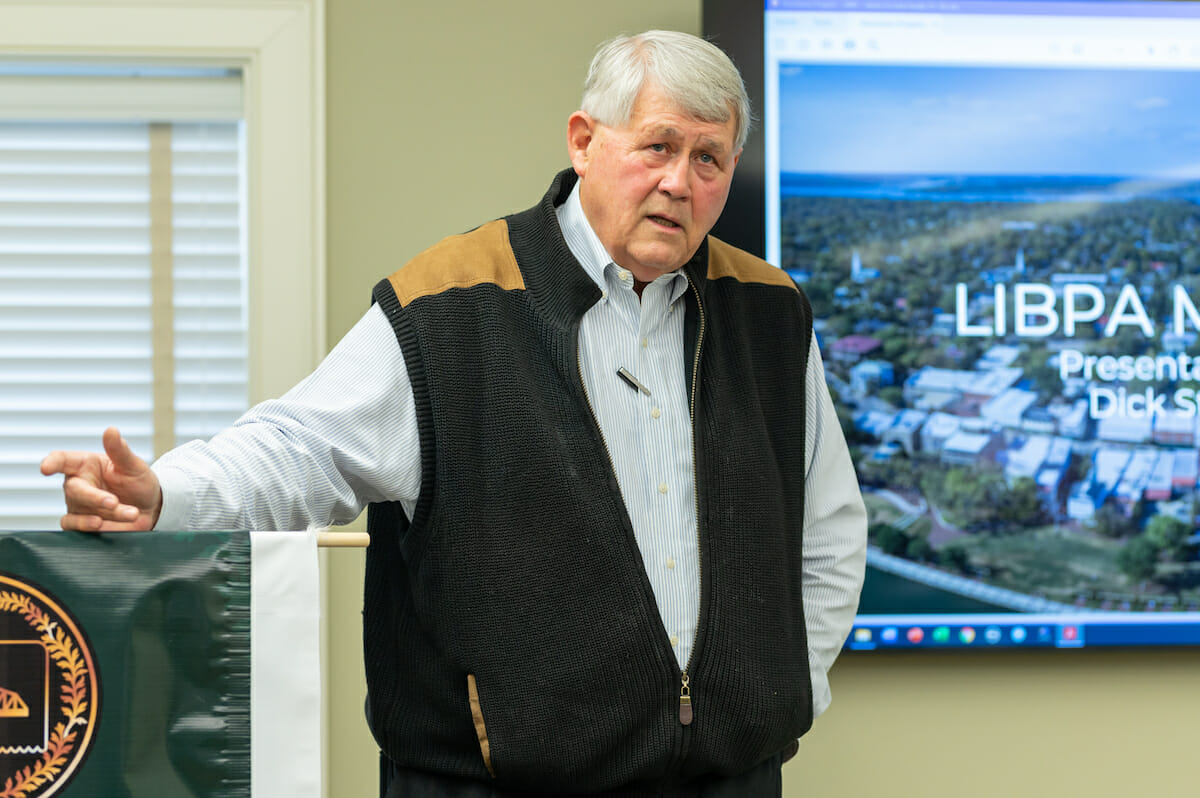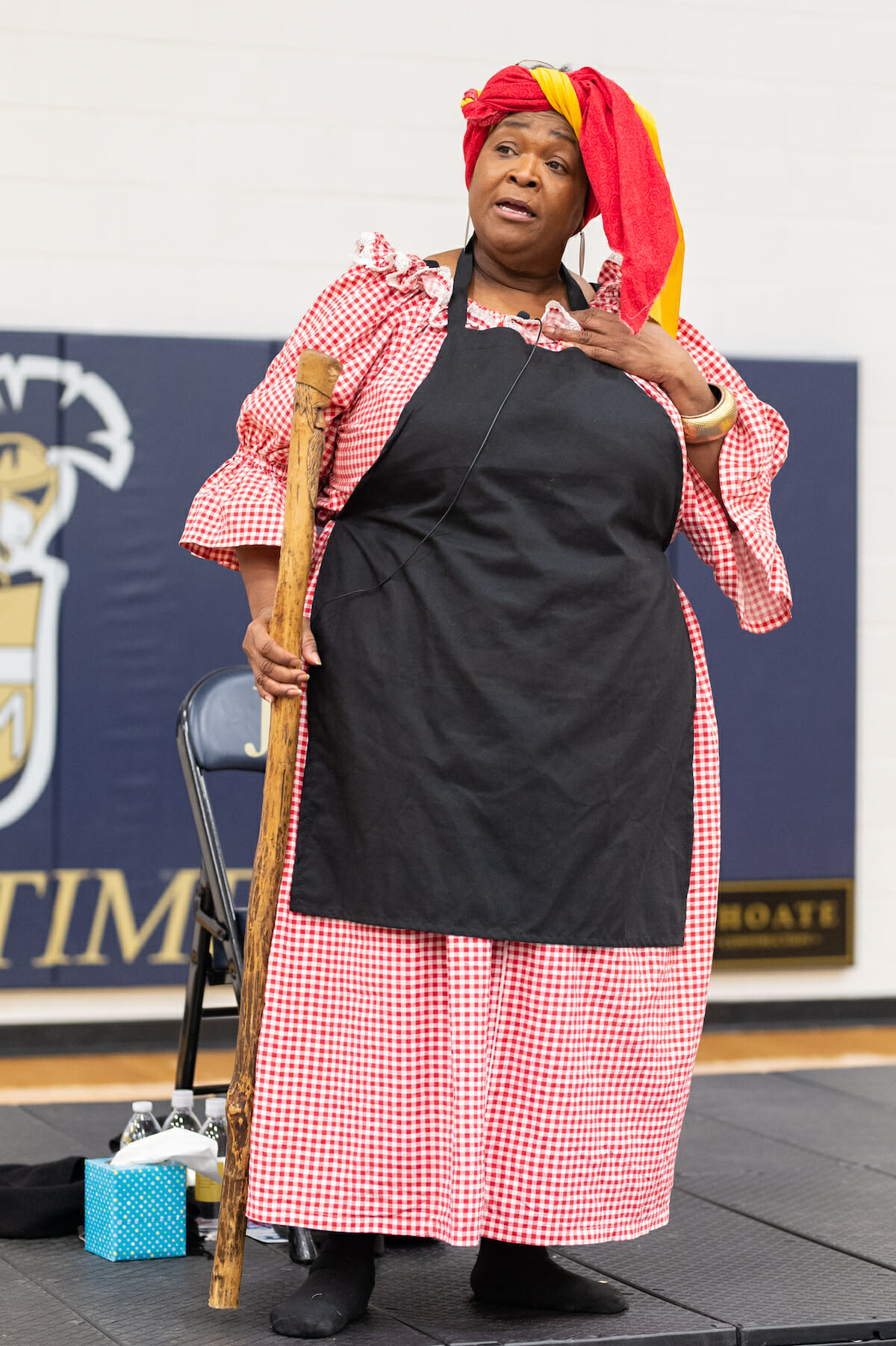By Tony Kukulich
The Stewart Family Office announced the creation of a $100,000 revolving fund to help preserve historic, traditionally Black-owned properties in the Northwest Quadrant of Beaufort.
A Feb. 3 press release issued by the Stewart Family Office stated, “The ownership and use of family homes and property has proven to be the single best path to the creation of intergenerational wealth in the history of the United States. Stewart Family Office is establishing this fund to work with families, property owners and others that are actively engaged in assisting heirs and families to retain and use their property.”
The number of freedman’s cottages – a specific architectural type of home built by previously enslaved people – is dwindling. A primary goal of the newly established fund is to slow or stop that trend.
“Since I retired in ’98 and moved back here, we have done a large number of renovations here in the historic district,” Dick Stewart told The Island News. “We understand the process. We understand the value of these properties, and we want to assist these folks with some money and some expertise so they can make use of their property.”
According to the Lowcountry Gullah Foundation, heirs’ property – land that has been handed from family member to family member, often without it being properly deeded – comes with a unique set of issues.
The original purchaser, usually a former slave, did not have a will or was unable to deed the property to their descendants. A property might now have several, if not hundreds of heirs who have ownership rights but no clear title. It may have been lived upon for generations, yet if the land goes up for sale or needs to be divided, the legality of who can do what with the property comes into play. Additionally, mushrooming tax liabilities on highly valued coastal properties, coupled with multiple owners and poorly documented provenance, often resulted in land and homes being lost to tax auctions.
Ironically, the land that was first available to formerly enslaved people for purchase was also the result of tax auctions. Chris Barr, interpretive supervisor for the National Park Service at Reconstruction Era National Historical Park explained that the arrival of Union forces in Beaufort County in late 1861 led to White landowners abandoning their land and fleeing the area.
“The position of the U.S. government was that the White landowners who had abandoned Beaufort County were just taxpayers who were delinquent on their taxes,” Barr said. “So they put notices in all of the local newspapers, and they began auctioning off all this land for unpaid taxes. Formerly enslaved people (now) working for wages could purchase small plots of farmland, five-, 10- or 15-acre plots. Some were larger, 20 or 30 acres.”
The layout of freedman’s cottages is not necessarily in line with contemporary sensibilities, a concern that Stewart acknowledged.
“The issue then becomes; how do we preserve those cottages?” said Stewart. “How do we preserve the legacy, and how do we put them to good use? We think the way to do that is to allow families to restore them. We need to make that easy and make it so they can have some income coming out of it by renting them to students or artists or folks like that. Students or artists will sometimes accept a little physical inconvenience to be with a group of people who are like-minded and create that energy.”
Focus on the Reconstruction Era and Beaufort’s role in Reconstruction has increased considerably in recent years. The Reconstruction Era National Park has its headquarters in Beaufort. The headquarters of the federally designated Gullah Geechee Cultural Heritage Trail is moving to Beaufort and the Institute for the Study of the Reconstruction Era has been established at the University of South Carolina Beaufort. Stewart sees the revolving fund as a part of the broad effort to tell the story of Reconstruction.
“At the end of the day, I would love to see, not just the preservation of big mansions and wonderful houses, but also the preservation of these cottages,” he said.
Those interested in applying for help from the fund can contact the Stewart Family Office by email at ds@stewartfo.com or by writing to the Stewart Family Office, 2015 Boundary St., Suite 317, Beaufort, S.C. 29902.
Tony Kukulich is a recent transplant to the Lowcountry. A native of Wilmington, Del., he comes to The Island News from the San Francisco Bay Area where he spent seven years as a reporter and photographer for several publications. He and his wife enjoy exploring their new home state. He can also frequently be found playing bass guitar with a couple of local bands. He can be reached at tony.theislandnews@gmail.com.




